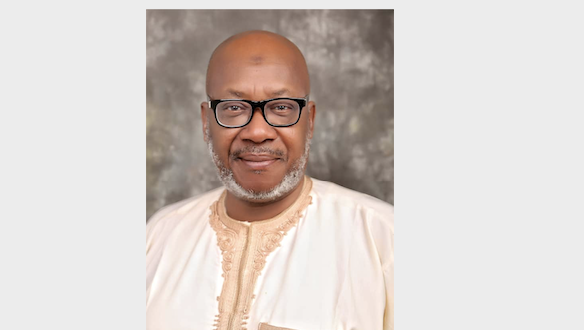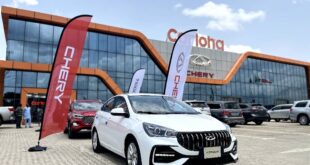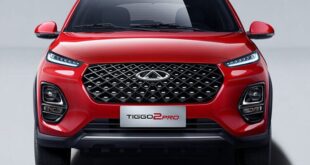Luqman Mamudu, a leading expert and advocate of a virile automotive industry in Nigeria, is a former Director of Policy and Planning at the National Automotive Council (NAC) now known as the National Automotive Design and Development Council (NADDC). In this exclusive interview with AUTO REPORT AFRICA, Mamudu,who is currently the Managing Partner, Transtech Industrial Consulting, speaks on the challenges and prospects of Nigeria’s automotive industry even as he points to the way forward in achieving desired goals. Excerpts;
(By Olaolu Olusina)
Please, how would you describe the present state of Nigeria’s automotive industry and what would you say is responsible for the state of the industry now?
The Nigerian Automotive industry is structurally in place. By this, I mean that following the launch of Nigeria Automotive Industry Development Plan (NAIDP) in 2014, a significant number of global OEMs and Nigeria brands established operations in Nigeria . These included Honda, Nissan, Ford, Kia, MAN Trucks, Peugeot, Hyundai, TATA, Foton, Shacman, Geely, Dongfeng, Sinotruck, Innoson Motors, Proforce Armoured vehicles, Yutong buses, Omaa, Jet Motors, Nord etc. By 2018, the facilities had combined Installed capacity to produce over 500, 000 per annum. The constraint however is that less than 3 percent of this capacity is utilised due to poor policy implementation.
You left a great mark while at the NADDC, then National Automotive Council (NAC), as the Director of Policy & Planning and you are still contributing your quota to the development and growth of the industry now. Are you really satisfied with the state of the automotive industry in the country? If not, what can still be done to get to our desired state?
I am certainly not satisfied with the state of the industry today and this is why I’ve sustained my advocacy for proper implementation. This is all we need to do. While in service, we successfully opened an investment pipeline into Nigeria by establishing OEMs presence either directly or in partnership with Nigerian entrepreneurs.
However, the incentive and protective measures in the form of programmes to grow capacity utilisation have been abandoned by those to whom we handed the reins. For instance, programmes for regulation of used vehicles imports, low cost asset acquisition funds scheme for made in Nigeria vehicles, safety laboratories, Investors Confidence Act and automotive supplier parks have all been practically abandoned. How can the industry grow? Even some of the tariff differential in favour of local assembly have been removed in favour of second hand vehicle imports. The excuse is usually to lower prices but this has hardly happened. To reverse the trend, all these programmes listed should be fully implemented.
On 16 February 2022, over a year ago, Nigeria was part of a historic Memorandum of Understanding signed between 12 Private Sector Automotive Associations in Africa and Europe to develop the automotive industry in Africa. One year after, would you say Nigeria is really moving in line with the MoU?
We are certainly not moving at all, the Nigerian Automotive industry and their promoters are in distress and disarray as every company struggles to survive alone. Recently though, the Nigerian Automotive Manufacturers Association (NAMA) is reorganising properly to key into the national and continental agenda especially as guarded by AAAM. This is a critical step towards Africa and global integration.
Nigeria seems not to really appreciate the full potential in the automotive sector hence the foot dragging in signing the Auto Policy Bill into Law. Is there any hope that the Bill will be signed into Law soon?
I am very hopeful that the bill will be signed into law but we have to move with speed. Nobody will pass a bill that remains on your shelf. Once it’s sent to the National Assembly, I am hopeful of a positive outcome because amongst other things, unlike in 2014 privately sponsored bill , the 2023/24 bill is an Executive intervention; besides, this government is keen on economic diversification for which the industry offers a great opportunity.
Countries such as South Africa, Egypt, Algeria , Morocco, and even neighbouring Ghana, are reaping bountifully from good automotive policies, do you think Nigeria could get to that level any time soon?
Nigeria has a fully established automotive industry just like the rest on your list. The only difference is our poor investment environment which is a major constraint for investment resource inflow through the pipeline already established by 2017. With the right intervention, Nigeria will clearly catch up and do significantly well, given its domestic market demand of about one million vehicles per annum.
From the situation on the ground, most auto assembly plants in the country are simply doing full SKD and importing fully -built vehicles with just a few are doing CKD. How can we transit into full CKD with the way we are going?
We can only Transit into full CKD and beyond if only we protect and support those who have already invested over $1.3 billion to reach critical SKD assembly volume in Nigeria. They will then gain some economies of scale to absorb high costs of production in Nigeria. It is only then that they can not only scale up to CKD, but will attract their traditional parts suppliers to Nigeria and grow local content with lots of jobs. Nigeria needs to be patient with this industry. We should all sacrifice and support its growth by subscription to an ideal enabling environment. Granted that we need to meet our critical transport needs urgently with Imported USED vehicles, the local industry should not be sacrificed.
Local content development and integration have remained big issues despite the potential. Are we really getting it right at all?
As I said, you can only grow local content when the assembly plants attain critical volumes. They can then make some components in-house and if NADDC pursues the establishment of the three automotive industry parks across Nigeria to fruition, they will be a receptacle for components manufacturers from around the world. Don’t forget that Nigeria once had over 80 components manufacturers in the 80s before the industry collapsed. These included glass, tyres, plastic parts, Exhaust system, wire harnesses , Radiators Batteries, seat belts, seats, etc These may be revived.
WesBank, a South African bank with interest in the automotive industry, made an attempt to introduce their Auto Finance scheme which is working well in SA but was frustrated. How can we have a workable Auto Finance scheme to boost auto production in the country?
I can clearly say that it caused the initial derailment of the NAIDP because it was one of the most critical components. We had engaged WesBank purely on the basis of their competence and specialisation in automotive vehicles asset acquisition.
The bank was engaged as technical partners to provide a platform for three sources of funds. 1. Levies collected on automotive imports as Equity 2. Funds from DFIs at the mezzanine level leveraging the banks Networks, then 3, senior debts from Nigeria banks.
The proposed interest rates were way below market rates. The project already secured a provisional licence for which WesBank deposited N100m in forex with CBN. The WesBank project or what we tagged Nigeria Vehicles Ownership Scheme was truly poised to roll out with a go-to-market programme in place. Unfortunately, it was abandoned after we left service.
WesBank can be approached again although I doubt that they will listen because of their past experience and losses ; both intellectual and physical. Going forward, there now exist a few automotive credit administration companies in Nigeria now. Any of them can be approached for a similar partnership by NADDC. Whatever model we adopt must be privately managed to prevent abuse.
Your general comments and advice for the government and major players for the industry to move forward.
Government should pass the NAIDP bill into law. This is all what the investors need to grow their investment already established in Nigeria.
The automotive assemblers and components manufacturers must consolidate and be united with functional Directorates. This will position the industry for continental integration.
NADDC should implement NAIDP programmes diligently with periodic reviews to inform Government action for planning and replanning.
Please, who is Luqman Mamudu? A brief profile and your interests, principle and philosophy of life?
I am an Economist with experience in Industrial Development. I joined the Government as an Industrial Officer Grade 1 in 1982. I attended Bayero University Kano, Nigeria; University of Wales ,UK; Royal Institute for Public Administration UK; and Harvard Kennedy School of Government, amongst others. I am an ISO certified Quality System Auditor and a Chartered Arbitrator.
Over the years, I have therefore been trained as a manager and promoter of related technologies for development. I retired as Director of Policy and Planning at the National Automotive Design and Development and now, I’m the Managing Partner of Transtech Industrial Consulting, a platform for industrial development experts.
I believe very firmly in service to the community and this is what drives me till date; six years after service. I love the open air . So, I cycle . Documentaries and biographies describe my choice of books.
- To read this interview and other interesting stories directly from AUTO REPORT AFRICA DIGITAL, click here: AUTO REPORT AFRICA DIGITAL January 2024
 ..:: AUTO REPORT AFRICA ::..
..:: AUTO REPORT AFRICA ::..




